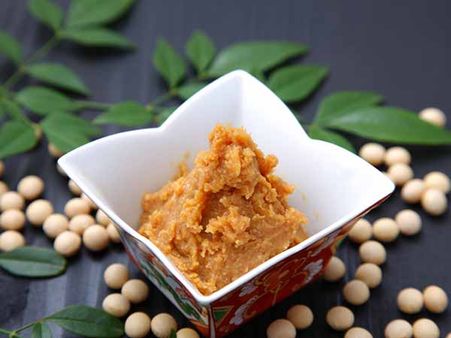Just In
- 1 hr ago

- 1 hr ago

- 3 hrs ago

- 4 hrs ago

Don't Miss
- Education
 CBSE Board Result 2024 expected to release soon: Know When and How to Check CBSE 10th & 12th Results
CBSE Board Result 2024 expected to release soon: Know When and How to Check CBSE 10th & 12th Results - Sports
 IPL 2024: Mitchell Starc or Andre Russell? Who is the Best Golfer in KKR?
IPL 2024: Mitchell Starc or Andre Russell? Who is the Best Golfer in KKR? - Finance
 Rs 44,000 Crore M-Cap Lost, Stock Falls 10%, No More 4th Largest Bank; How RBI's Ban Rocked Kotak
Rs 44,000 Crore M-Cap Lost, Stock Falls 10%, No More 4th Largest Bank; How RBI's Ban Rocked Kotak - Movies
 Idi Minnal Kadhal OTT Release Date And Platform: When And Where To Watch Ciby And Bhavya Trikha's Movie
Idi Minnal Kadhal OTT Release Date And Platform: When And Where To Watch Ciby And Bhavya Trikha's Movie - Automobiles
 How To Enjoy Your Car Music Safely Without Compromising On Road Safety
How To Enjoy Your Car Music Safely Without Compromising On Road Safety - Technology
 Garena Free Fire Max Redeem Codes for April 25, 2024: Get Access to the Latest Freebies in the Game
Garena Free Fire Max Redeem Codes for April 25, 2024: Get Access to the Latest Freebies in the Game - News
 How Will Vokkaliga Voters Influence Bengaluru Rural Elections?
How Will Vokkaliga Voters Influence Bengaluru Rural Elections? - Travel
 Escape to Kalimpong, Gangtok, and Darjeeling with IRCTC's Tour Package; Check Itinerary
Escape to Kalimpong, Gangtok, and Darjeeling with IRCTC's Tour Package; Check Itinerary
What Is Miso? Health Benefits, Risks And Recipe
A traditional, staple ingredient in Chinese and Japanese diets, miso is a popular fermented condiment that is packed full of vitamins, minerals and beneficial plant compounds. In Japanese, miso means 'fermented beans' and people in Japan begin their day with a bowl of miso soup.
In this article, we'll explain what is miso, its health benefits, risks and recipes.

What Is Miso?
Miso is a thick paste made by fermenting soybeans with salt and koji (Aspergillus oryzae), a type of fungus. Miso can also be made by fermenting rice, barley, beans or oats mixed with salt and koji, which results in a variety of colour and different tastes of miso [1].
There are several varieties of miso such as white, red, yellow and brown, the most common varieties being red and white. White miso is made by fermenting soybeans with large amounts of rice and red miso is made by fermenting soybeans with barley or other grains for a long time.
Miso paste can be used in a wide variety of dishes such as soups, stews, vegetables, meat, salad dressings and marinades.
Nutritional Value Of Miso
100 g of miso contains 43.02 g water, 198 kcal energy and it also contains:
- 12.79 g protein
- 6.01 g fat
- 25.37 g carbohydrate
- 5.4 g fibre
- 6.2 g sugar
- 57 mg calcium
- 2.49 mg iron
- 48 mg magnesium
- 159 mg phosphorus
- 210 mg potassium
- 3728 mg sodium
- 2.56 mg zinc
- 0.42 mg copper
- 7 mcg selenium
- 0.098 mg thiamine
- 0.233 mg riboflavin
- 0.906 mg niacin
- 0.199 mg vitamin B6
- 19 mcg folate
- 72.2 mg choline
- 0.08 mcg vitamin B12
- 4 mcg vitamin A
- 0.01 mg vitamin E
- 29.3 mcg vitamin K

Health Benefits Of Miso

1. Supports digestive health
Miso is a great source of probiotics because it contains Aspergillus oryzae. And research studies show that probiotics help in maintaining a healthy gut flora, prevent gut inflammation and other gastrointestinal problems such as constipation, gas, bloating and irritable bowel syndrome (IBS) [2] [3].


2. May lower blood pressure
Animal studies have showed that miso can aid in lowering blood pressure even though it is high in salt. The study found that rats receiving 2.3 per cent of sodium chloride (NaCl) had a significant increase in systolic blood pressure, whereas rats receiving the same amount of salt from miso didn't experience a rise in blood pressure levels [4].
Another animal study found that long-term consumption of miso soup stops the blood pressure from increasing in mice with salt-induced hypertension or organ damage. This may be possibly caused due to a decrease of sodium absorption in the gastrointestinal tract or by the direct effects of nutrients in the miso soup [5].

3. Reduce cholesterol levels
A study published in the Japanese Pharmacology and Therapeutics showed that Japanese adults with high cholesterol levels who consumed miso soup for three months resulted in the reduction of total cholesterol levels and significantly lowered LDL (bad) cholesterol compared to a placebo [7].
Another animal studies have also shown that miso can help lower bad cholesterol levels [8].


4. May help in weight loss
A 2019 study published in the journal Nutrients showed the anti-obesity effects of miso. The study found that consumption of miso suppressed the accumulation of visceral fat when combined with exercise. However, the study is done on animals further studies are needed on humans [9].

5. Boosts immunity
The presence of probiotics in miso can help in maintaining healthy gut flora, which in turn strengthens immunity and decreases the growth of harmful bacteria [10].

6. May manage cancer risk
Studies have showed that the intake of miso soup may lower the risk of colon cancer [11]. Another study published in the International Journal of Cancer found that consumption of miso soup may lower the risk of liver cancer [12].
Another study showed that frequent consumption of miso soup was linked to a reduced risk of breast cancer in Japanese postmenopausal women [13].
However, more research studies are needed in this area.

Possible Risks Of Miso
For most people miso consumption is generally safe. However, people who are allergic to soybeans should avoid consuming miso. Also, miso is high in salt so, people who need to reduce their salt intake due to a medical condition should avoid miso consumption.
Additionally, miso contains a good amount of vitamin K, which can interact with blood-thinning medications. Do consult your doctor before adding miso into your diet.
How To Select And Store Miso
Choose unpasteurised, live, enzyme-rich miso product as it is loaded with beneficial microorganisms. The best way to store miso is in the refrigerator.

Miso Recipes
Miso chicken and rice soup
Ingredients
- 500 ml chicken stock
- 2 skinless chicken breasts
- 50 g long grain rice
- 8 carrots, halved lengthways
- 2 tbsp miso paste
- 1 tbsp soy sauce
- 1 tbsp mirin
- 2 spring onions, sliced
- Bring the chicken stock to a gentle boil and then add the chicken breasts and simmer for 8 minutes until it's cooked. Take the meat out and shred it.
- Add the rice and carrots to the stock. Reduce the heat and cook for 10 minutes until the rice and carrots are cooked.
- Add the shredded chicken to the rice and carrot mixture. Add miso paste, soy sauce and mirin. Sprinkle spring onions over it and serve.
Method
-
 healthDo You Keep A Clove Of Garlic Under Pillow? Not To Keep Vampires At Bay, There May Be Scientific Reasons
healthDo You Keep A Clove Of Garlic Under Pillow? Not To Keep Vampires At Bay, There May Be Scientific Reasons -
 healthGet Your Groove On: 5 Health Benefits Of Dancing To Afro Beats
healthGet Your Groove On: 5 Health Benefits Of Dancing To Afro Beats -
 healthIndigenous Delicacies: 5 Rare Indian Wild Foods That Are So Healthy You Should Try It!
healthIndigenous Delicacies: 5 Rare Indian Wild Foods That Are So Healthy You Should Try It! -
 healthHaving Chicken Soup At Home Can Cure These Health Issues
healthHaving Chicken Soup At Home Can Cure These Health Issues -
 healthBoost Your Health with Beetroot: Health Benefits And Ways To Add The Colourful Veggie In Your Diet
healthBoost Your Health with Beetroot: Health Benefits And Ways To Add The Colourful Veggie In Your Diet -
 healthHealth Benefits Of Garam Masala: From Digestion To Weight Loss, Proper Use Can Yield Many Benefits
healthHealth Benefits Of Garam Masala: From Digestion To Weight Loss, Proper Use Can Yield Many Benefits -
 healthAyurvedic Wisdom: Panchamrit's Surprising Health Benefits
healthAyurvedic Wisdom: Panchamrit's Surprising Health Benefits -
 healthUnveiling the Power of Turmeric Ghee: An Ancient Ayurvedic Secret!
healthUnveiling the Power of Turmeric Ghee: An Ancient Ayurvedic Secret! -
 healthPlant-Based Diet And Nutrition: Your Key To A Stronger Immune System!
healthPlant-Based Diet And Nutrition: Your Key To A Stronger Immune System! -
 healthExperience the Healing Power of Indian Herbal Teas!
healthExperience the Healing Power of Indian Herbal Teas! -
 healthInternational Cat Day 2023: Did You Know That Cat Purring Can Benefit Your Health? Check Out How!
healthInternational Cat Day 2023: Did You Know That Cat Purring Can Benefit Your Health? Check Out How! -
 healthHeart-Healthy Breakfast: Discover The Benefits Of Frozen Strawberries
healthHeart-Healthy Breakfast: Discover The Benefits Of Frozen Strawberries


 Click it and Unblock the Notifications
Click it and Unblock the Notifications




